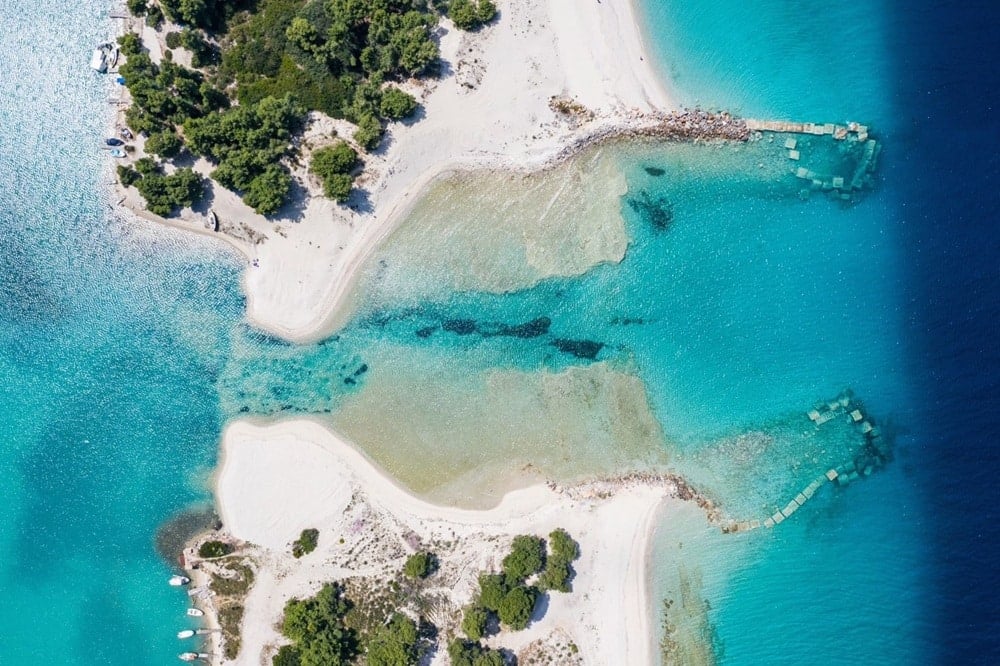

Greece has maintained its position as the country with the second-highest number of Blue Flag beaches in the world for 2025, an accolade that guarantees beaches of dazzling beauty as well as a commitment to sustainability.
The Mediterranean country received 623 Blue Flag Awards, including 623 beaches, 17 marinas and 17 sustainable tourism boats.
In 2024, Greece boasted 596 Blue Flags, 94 of which were in the Halkidiki region.
The awards were announced on Thursday in Athens, at an event hosted by the Hellenic Society for the Protection of Nature (HSPN), Greece’s operator of the International Blue Flag program. It is run by the Copenhagen-based Foundation for Environmental Education (FEE), and since 1987 it’s one of the globe’s most recognized voluntary awards for beaches, marinas, and tourism boats.
Greece now accounts for 15 percent of all Blue Flag beaches worldwide, and ranks second among the 52 participating countries.
The region of Halkidiki, near Thessaloniki in northern Greece led all other municipalities with 93 flags, while the island of Crete topped regional rankings with a total of 153.
Around the globe, 4,302 beaches, 736 marinas and 158 tourism boats have been awarded a Blue Flag for 2025, recognizing high standards in water quality, safety, environmental management and services.
Spain leads the world in Blue Flags once again with 642 beaches flying the award this summer, which marks a new record for the country.

The Blue Flag program is based on a series of strict water quality, environmental, educational, safety-related, and access-related requirements.
Municipalities of specific countries apply for a Blue Flag and send their requests to the national operator. The National Jury then examines applications for compliance and hands out an approval or rejection on the national level. Approved submissions and dispensation cases are forwarded from the National Jury to the International Jury.
The International Jury carries out an evaluation and determines which beaches and marinas should be awarded the Blue Flag for the season. The organization is made up of eminent members from the FEE Board, UNESCO, the European Network for Accessible Tourism (ENAT), the World Tourism Organization (UNWTO), the European Union for Coastal Conservation (EUCC), and the United Nations Environment Programme (UNEP).
All Blue Flags are awarded for one sailing/bathing season, usually from June 1st to September 15th. By reallocating awards each season, the program ensures beaches are constantly living up to the criteria.
Once a Blue Flag has been awarded, program inspectors can remove the certification if it’s deemed that the beach does not meet the set standards.
Last year, 22 beaches in Greece lost their Blue Flag status a month after they had been awarded the accolade when inspections showed that they no longer met the program’s strict criteria ahead of the summer season.
